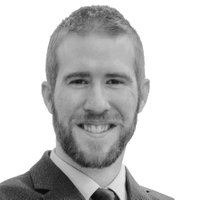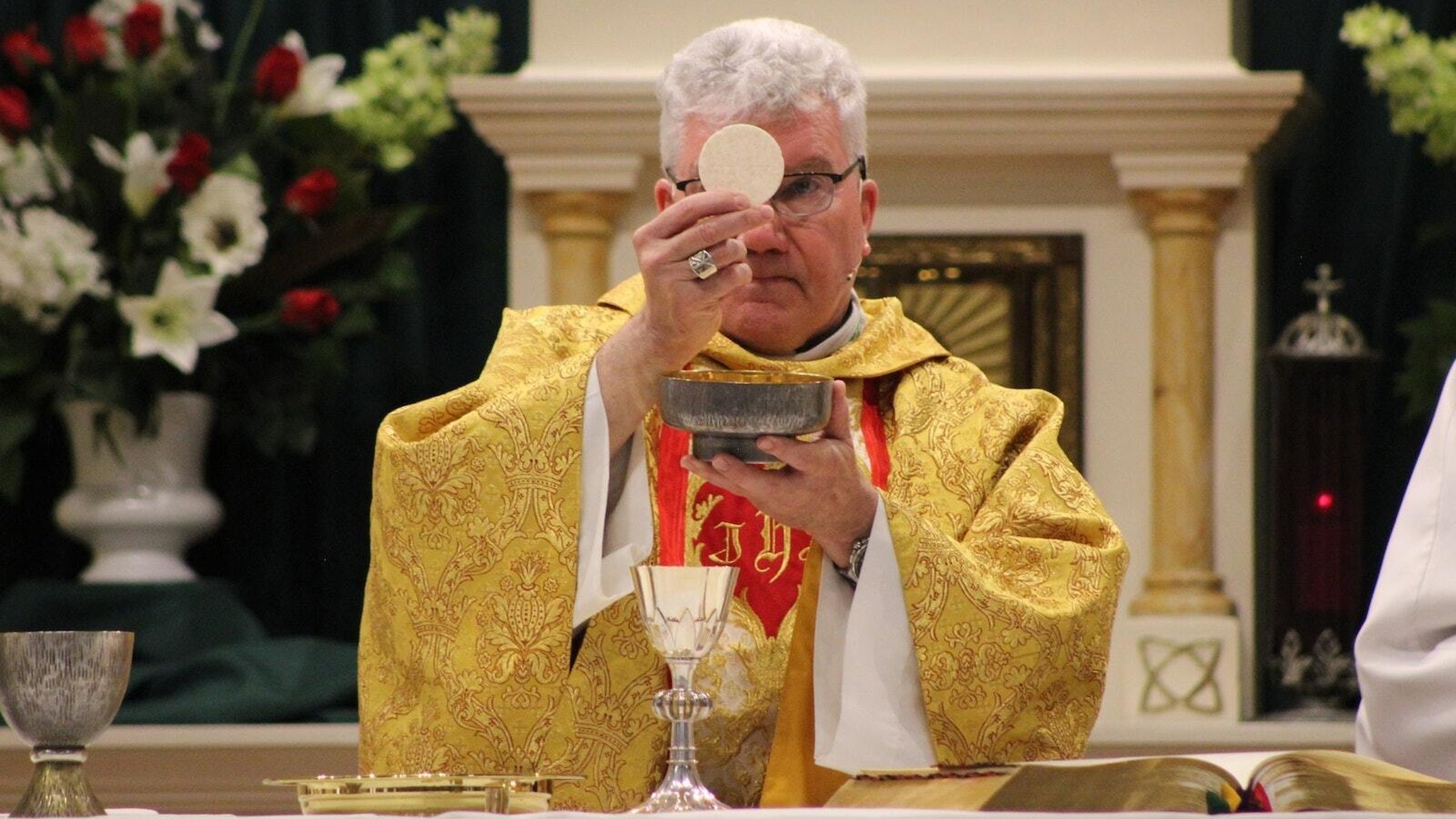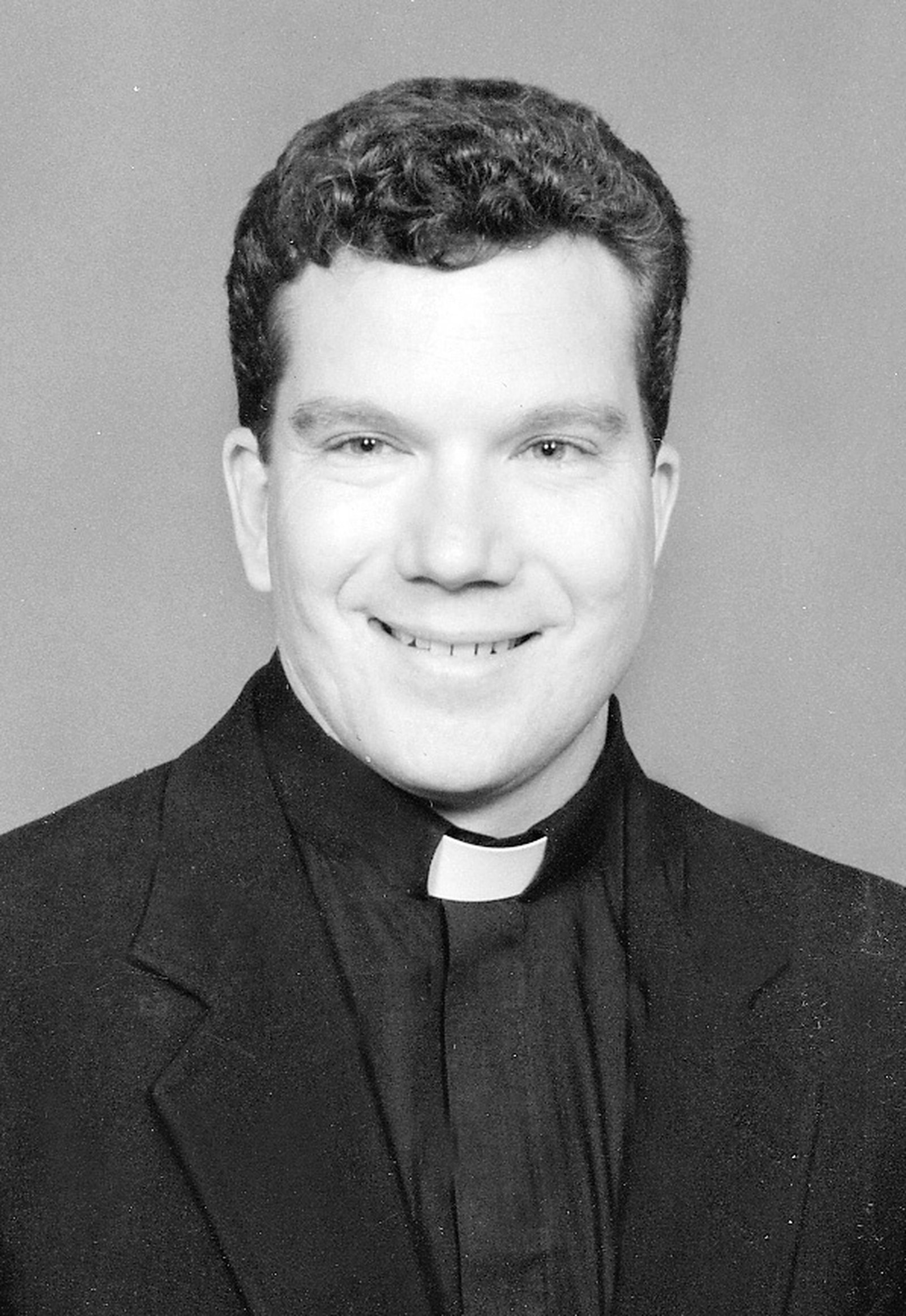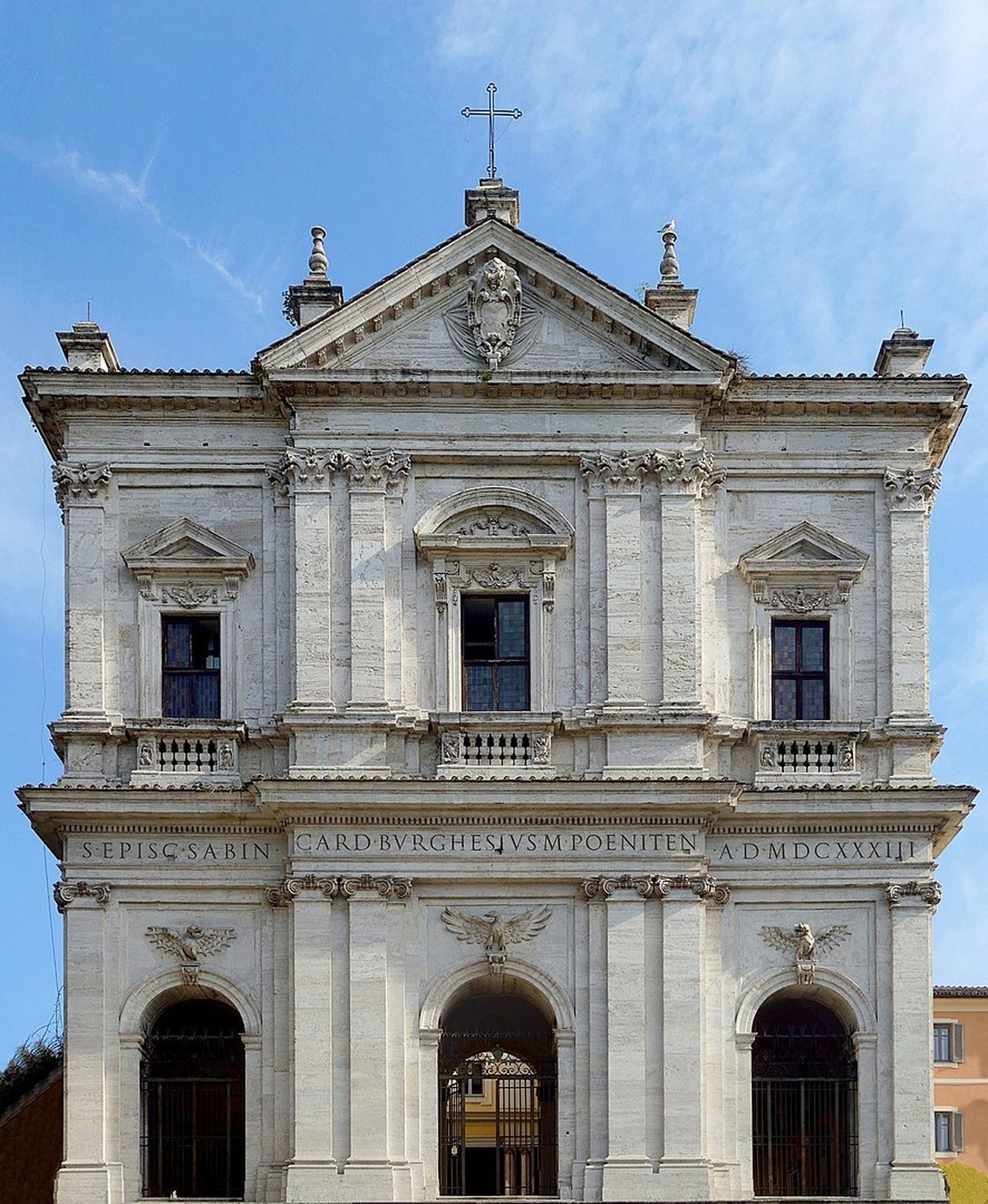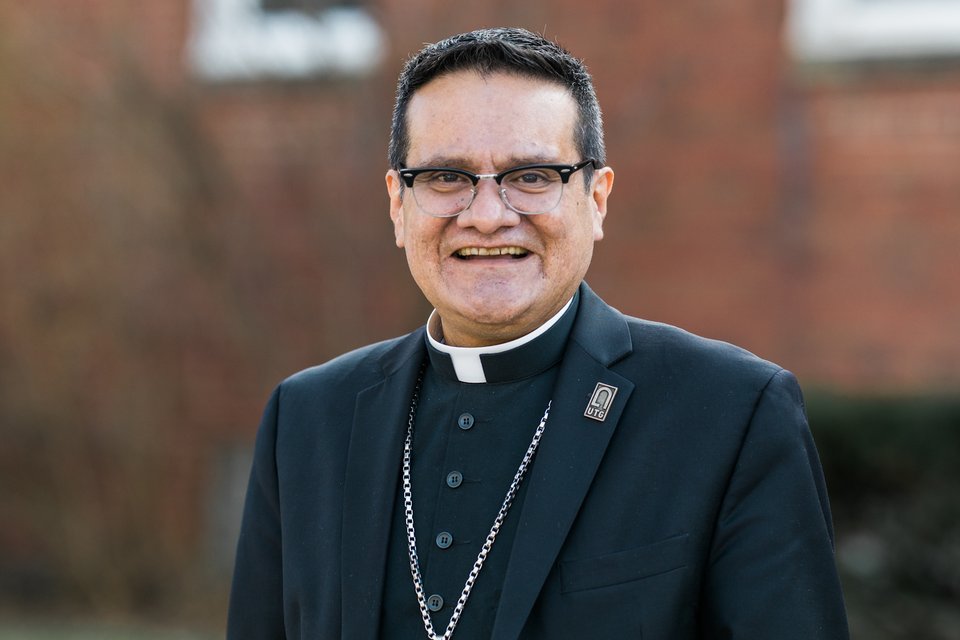Detroit's newest auxiliary bishop was born and raised with a Motor City mindset, and formed with a pastor's heart for Christ
DETROIT — To say Bishop Jeffrey M. Monforton is familiar with the Archdiocese of Detroit would be, well, a bit of an understatement.
Detroit’s newest auxiliary bishop not only grew up in the Motor City, but he spent 18 years as a priest serving Detroit’s faithful.
Six of those years he spent forming Detroit’s future priests as rector and president of Sacred Heart Major Seminary, molding countless vocations in southeast Michigan and beyond.
As a young priest, he served as secretary to Detroit’s cardinal archbishop, learning the archdiocese through the eyes of its shepherd at the time, Cardinal Adam J. Maida.
And he was pastor of the Archdiocese of Detroit’s largest parish — St. Andrew in Rochester, albeit briefly — in 2012 before Pope Benedict XVI called him to the episcopal ministry.
For the past 11 years, Bishop Monforton has served as bishop of the Diocese of Steubenville, Ohio, but Detroit has never been far from his heart.
“Believe me, when I was asked to pastor St. Andrew’s, I saw zero possibility of my leaving there,” Bishop Monforton said in an interview with Detroit Catholic. “I was hoping to be there for 21 years (until the priestly retirement age of 70). But obviously, the Lord had different ideas.”
On Sept. 28, the Holy See announced Bishop Monforton would be returning to southeast Michigan as the Archdiocese of Detroit’s 32nd auxiliary bishop — an announcement he called “bittersweet,” given the friendships and connections he made in Ohio.
But make no mistake, Bishop Monforton is still a Detroiter at heart.
“Here’s a little-known fact,” Bishop Monforton quipped, showing off his Motor City bona fides. “The Detroit Lions have their foundation in Ironton, Ohio, in the southern part of the Diocese of Steubenville. They were called the Ironton Tanks, and they were a semi-pro team in the 1920s. They eventually were bought out by Portsmouth, who were eventually bought out by Detroit.
“They also played football on Thanksgiving,” Bishop Monforton added, referencing the Lions’ annual Thanksgiving Day game tradition. “There’s a tidbit for your next game of Trivial Pursuit.”
'The calling did not leave me'
"Thanksgiving" is an apt word to describe Bishop Monforton’s thoughts about returning to the city and archdiocese where he grew up and discovered his vocation and love for the Lord.
Raised in the city’s western suburb of Westland, Bishop Monforton’s parents, Marc and Virginia, weren’t shy about instilling faith in their three sons from an early age. Along with his younger brothers, David and Daniel, Bishop Monforton recalls attending Mass every Sunday at SS. Simon and Jude Parish and taking holy days very seriously.
“My family was very devout. I remember as a kid, we would go to Good Friday service, and I had this belief along with friends of mine that if we walked outside between 12 and 3 p.m., we would catch on fire,” Bishop Monforton laughed. “Kids are kids, but my parents were devout.”
In addition to teaching their children to pray the rosary, the Our Father, and how to profess the Nicene Creed, “they instilled in me a love for the Church and a love for the faith,” Bishop Monforton recalled. “They were a fantastic example for my brothers and me.”
Bishop Monforton had an inkling the Lord might be calling him to the priesthood after his confirmation in eighth grade, but “I was also thinking God might be calling me to be a husband and a dad, and I was very comfortable with that,” Bishop Monforton said.
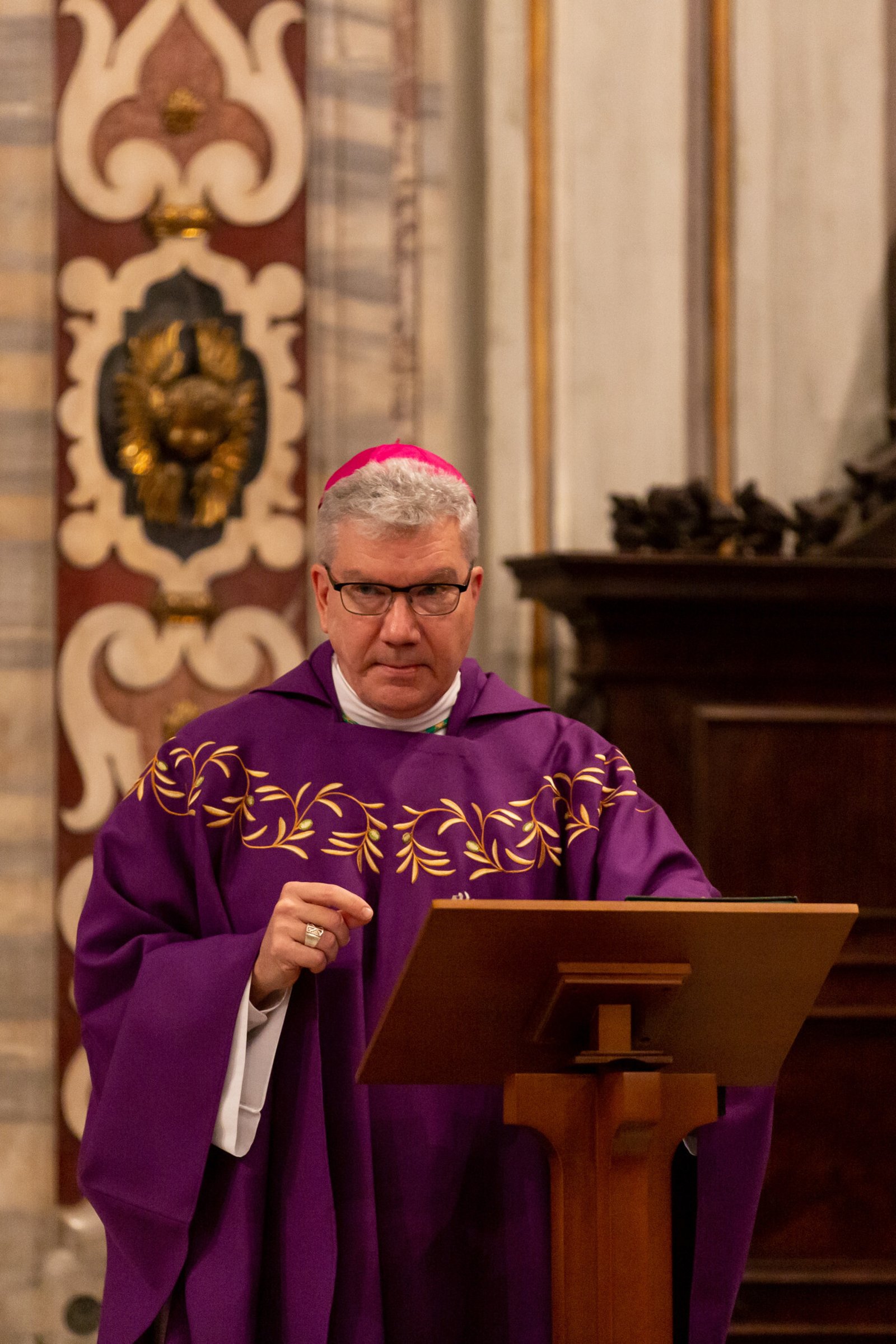
By the time he was a senior at Wayne Memorial High School in Wayne, the thought of priesthood had resurfaced. His father took him to talk with the vocation director at Sacred Heart Seminary, but it didn’t quite feel like a fit.
“So I ended up going to Wayne State University instead, but the calling did not leave me,” Bishop Monforton said.
The elder Monforton didn’t push his son in either direction — and years later, Bishop Monforton discovered why.
“I didn’t find this out until after my father had passed away (in 2003), but my dad had toyed with the idea of going to the seminary before he met my mom,” Bishop Monforton said. “Of course, I’m very grateful he met my mom, but that meant they were both very supportive when I ultimately told them I was thinking about entering the seminary.”
By the winter of 1986, the calling had become so strong that he couldn’t ignore it any longer.
In February, he broke up with his girlfriend, and attended a discernment weekend at Sacred Heart just before Holy Week. He entered the seminary that August.
“It wasn’t a bargain with the Lord, but my eyes were wide open,” Bishop Monforton recalled. “I was more certain I was going to be a priest than a dad and a husband, but I still saw that as part of the discernment process. Discernment is about choosing between two goods, and I saw them both as goods.”
Called in Detroit, formed in Rome
During Bishop Monforton’s college years at Sacred Heart, the Archdiocese of Detroit made the decision to close St. John’s Provincial Seminary in Plymouth Township, moving the theologate to the newly designated Sacred Heart Major Seminary in 1988.
Before he could complete his application, however, the rector informed Bishop Monforton that Cardinal Edmund C. Szoka, Detroit’s archbishop at the time, had another idea: he would be sent to Rome to study theology at the Pontifical North American College.
“On the lighter side, I had known there was another seminary called the American College in Leuven, Belgium. My family has some French background, so I mentioned to the rector that maybe Leuven would be a better place for me,” Bishop Monforton said. “And he just laughed and said, ‘Jeff, that’s not how it works.’”
He spent five years in Rome, earning his bachelor’s in theology and licentiate in spirituality, immersed in the spiritual epicenter of the Catholic Church. A highlight, he said, was inviting his parents to Rome when he received his candidacy — and the Roman collar — and for his diaconate ordination.
“We had an individual audience with Pope St. John Paul II, and I had an opportunity to introduce my mom and dad to him,” Bishop Monforton said. “I have a picture in my house of that, and my mom does in the kitchen.”
Outside of his coursework, Bishop Monforton spent time ministering to the homeless at the shelter of San Gregorio Magno al Celio, which was run by the Missionaries of Charity and St. Teresa of Calcutta, whom he was privileged to meet.
Providentially, San Gregorio also happened to be the Roman church of Cardinal Szoka (every cardinal is assigned a “titular” church in the Diocese of Rome), who in 1990 had been named president of the Prefecture for the Economic Affairs of the Holy See, overseeing the Vatican’s finances.
“Cardinal Szoka would often visit with the seminarians from Detroit — at one point there were six of us there,” Bishop Monforton said. “Cardinal (Adam J.) Maida (who was named archbishop of Detroit in 1990) would also visit with us when he came into town.”
While working at the shelter, Bishop Monforton was privileged to meet with St. Teresa of Calcutta, who, along with his audience with St. John Paul II, provided the “spiritual octane” he needed to fuel his young vocation.
“It’s remarkable,” he said. “When I look at the 20th century, two of the greatest saints I see are St. John Paul II and St. Teresa of Calcutta, and I had the privilege to meet both of them.”
Bishop Monforton’s other apostolic activities included teaching high school religion, as well as serving for two years on the U.S. naval base in Naples, Italy, baptizing, teaching RCIA and visiting with military families as a transitional deacon. At the time, Msgr. Timothy Hogan, a priest of the Archdiocese of Detroit, was serving as a chaplain on the naval base.
“Chaplains in the military, their work is unparalleled. Often, the parish where they work isn’t a stable parish. People come and go, and at the same time, they could be living in an area that is somewhat hostile for Catholics, or at least for Americans,” Bishop Monforton said. "(Msgr. Hogan) was a very strong, positive influence on me as a priest.”
Early lessons on episcopal leadership
On June 25, 1994, Bishop Monforton was ordained a priest of the Archdiocese of Detroit at the Cathedral of the Most Blessed Sacrament in Detroit — one of two in his ordination class, along with Fr. David Burgard.
After spending two years as associate pastor of the National Shrine of the Little Flower Basilica in Royal Oak, as well as teaching at the parish high school, Bishop Monforton once again received a special request from his bishop. Cardinal Maida, who had ordained him, wanted then-Fr. Monforton to be his personal priest-secretary.
From 1998 to 2005, he lived, traveled and served with the cardinal all over the Archdiocese of Detroit and beyond — getting a front-row seat to the inner workings of the Church.
He didn’t know it at the time, but those seven years would turn out to be pivotal formation when, years later, he would receive his own episcopal calling.
“When I would drive Cardinal Maida around, he would often ride shotgun and go through his mail as I was driving the car,” Bishop Monforton recalled. “We would have a chance to talk, and I didn’t realize it was on-the-job training. I was just happy to serve him.”
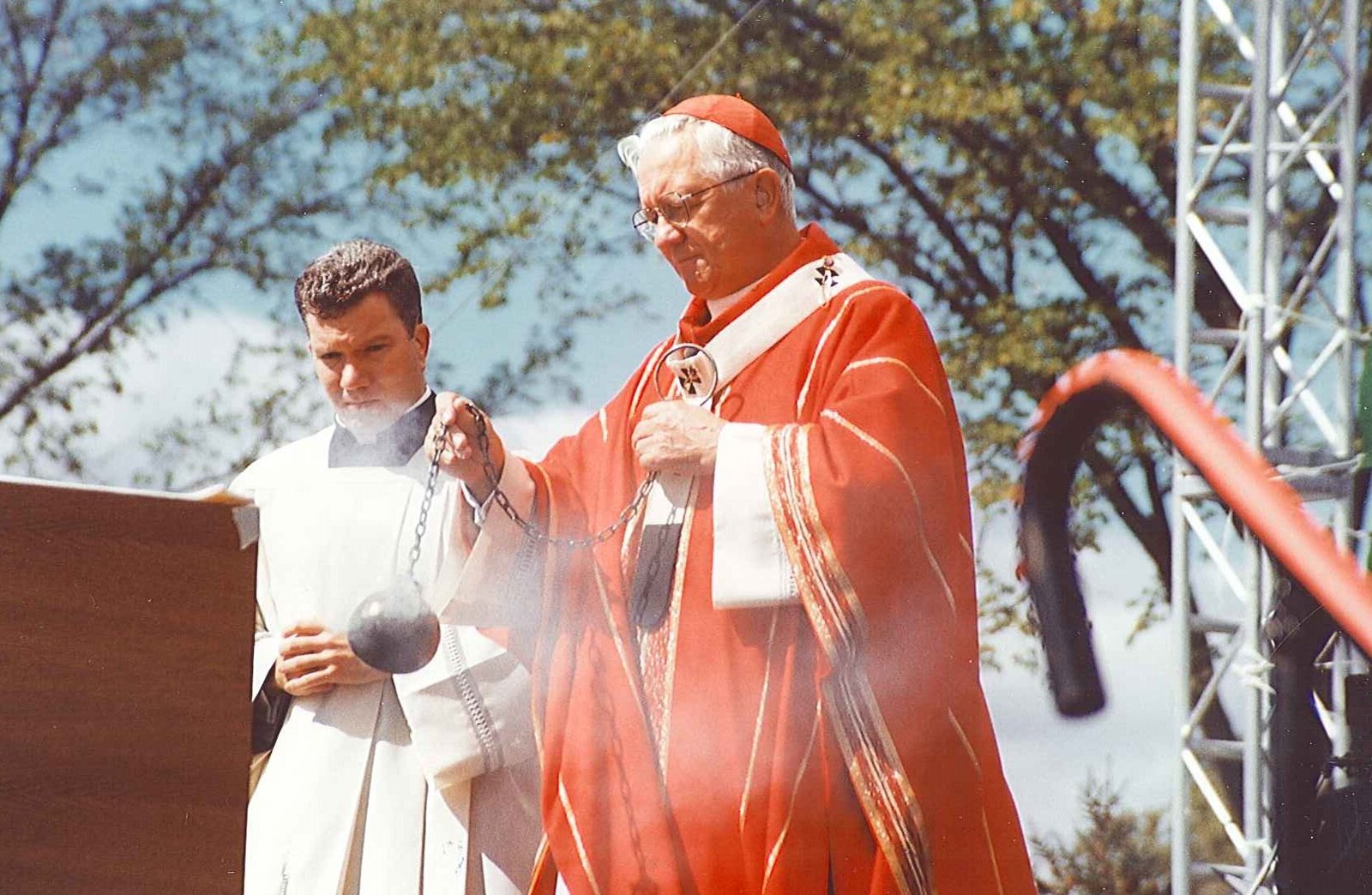
Among the lessons he learned from the cardinal was an important one about leadership and service.
“He had a very kind heart, even when he had to make unpopular decisions," Bishop Monforton said. "Cardinal Maida personified how Pope Francis describes a pastor in his encyclical Fratelli tutti, and I learned from that. I remember him once telling me, ‘You really have a good rapport with the priests in Detroit.’ And I said, ‘Well, of course. They’re my brothers.’ And I said, ‘Eventually I’m not going to be your secretary anymore. I’m going to be a pastor, and these are my brothers.’”
While neither Bishop Monforton nor Cardinal Maida knew what the future would bring, he received his first chance to serve his brother priests when, in 2006, the cardinal asked Msgr. Monforton (who was given the title "monsignor" in 2005 by Pope Benedict XVI) to become the 12th rector of Sacred Heart Major Seminary.
He had spent some of the preceding years as a member of the seminary’s faculty, as well as serving on weekends assisting at St. Paul on the Lake Parish in Grosse Pointe Farms and St. Jane Frances de Chantal Parish in Sterling Heights.
As the seminary’s rector, and thus the person chiefly in charge of forming Detroit’s future priests, Msgr. Monforton took his charge seriously.
“You really have to put your heart and mind to it, and that’s what I tried to do as rector,” said Bishop Monforton, who also served from 2005-06 as pastor of St. Therese of Lisieux Parish in Shelby Township. “It’s easy to memorize the Catechism. It’s a whole different story to employ loving God and neighbor, and that’s what I tried to instill in my men, to make sure they had the Sacred Heart of Jesus.”
To help seminarians do that, Msgr. Monforton encouraged the seminarians and faculty to engage with the Detroit community, visiting often with neighbors and getting to know their needs.
“In July, I would often trim trees all around the seminary, and I would run into people in the morning who were out walking with their kids, and we’d have a chance to talk,” Bishop Monforton said. “It was very important for us to realize we were part of the community.”
'Your life is for the people'
In 2012, Archbishop Allen H. Vigneron made him part of an even larger community — the largest in the Archdiocese of Detroit, in fact — when he named Msgr. Monforton pastor of the 5,000-family community of St. Andrew Parish in Rochester.
That assignment lasted a whole seven weeks.
“I guess at that point, Pope Benedict had other ideas, because that’s when the announcement came that I was going to go to Steubenville,” Bishop Monforton said.
The surprise appointment on July 3, 2012, caught everyone off guard — especially him.
Bishop Monforton said he had expected to remain at St. Andrew for years — decades, perhaps — and told The Michigan Catholic newspaper at the time he was “stunned” by the phone call from the papal nuncio.
“I didn’t in my wildest dreams expect that,” he said.
He was ordained Steubenville’s fifth bishop in a standing-room liturgy at the Franciscan University of Steubenville on Sept. 10, 2012.
In the 11 years since, he’s served the southeastern Ohio diocese — the smallest in the state with less than 30,000 Catholics — with love, energy and a fervor for evangelization he says was cultivated by his faith-filled upbringing in the Archdiocese of Detroit.
He’s made it a point to visit every one of Steubenville’s 51 parishes, spread over 5,910 square miles and 13 counties, putting more than 350,000 miles on two cars, as if on a mission to share Christ with every person in the diocese.
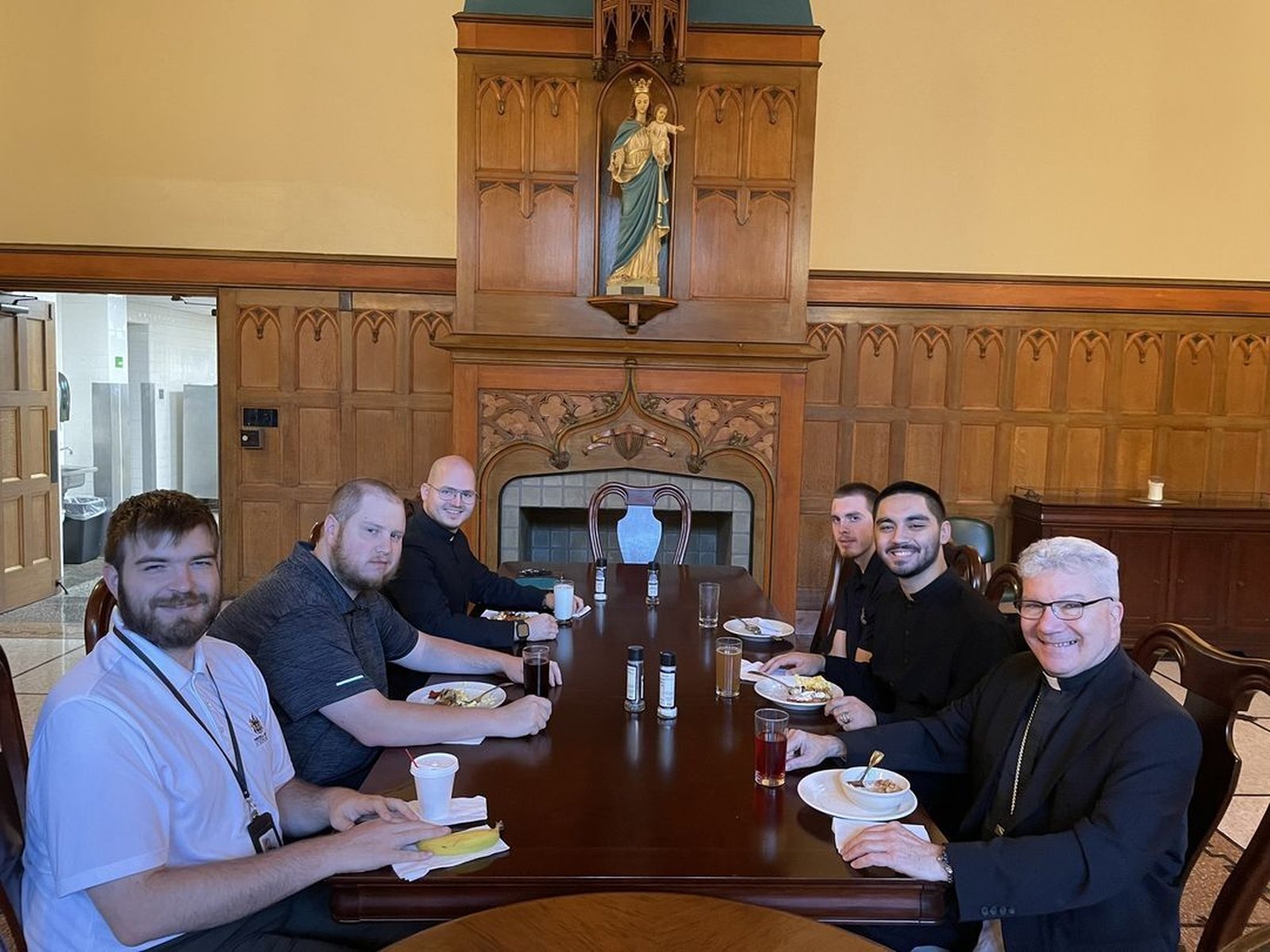
Although there have been bumps along the road — including a proposed merger of the diocese with the neighboring Diocese of Columbus last year that resulted in passionate debate and disagreement — Bishop Monforton says he has nothing but love for the people of Steubenville, even as he looks forward to returning to his roots in Detroit.
“One of the things I learned from Cardinal Maida was that as a bishop, your life is not your own anymore,” Bishop Monforton said. “Your life is for the people. The threefold office (of a bishop) is to teach, sanctify and govern, and you have to find a way to balance all that while loving your priests and your people regardless of the challenges out there.”
Unlike the pastor of a parish or the rector of a seminary, it can be difficult for a bishop to get to know people on the same intimate level, Bishop Monforton said. But it has its blessings, too.
“As a bishop, you’re going to hear complaints often more than you hear compliments. You’re doing spiritual triage a lot of the time,” Bishop Monforton said. “It’s a great weight to be a bishop, but at the same time I tell people, it’s all for Jesus. It’s all for the joy of the Gospel.”
The role of a bishop is ultimately to be a shepherd, he said, not a solution to a problem — no matter how vexing the problem might be.
“If you think of the early Church and the challenges it had, I’m very grateful that we are not the solution,” Bishop Monforton said. “Jesus Christ is the solution, and it’s all about Jesus at the end of the day. That’s what the Church needs to always proclaim.
“‘Todo para Jesus,’ is how we’d say it in Spanish,” Bishop Monforton said. “Everything for Jesus.”
Copy Permalink
Bishops

